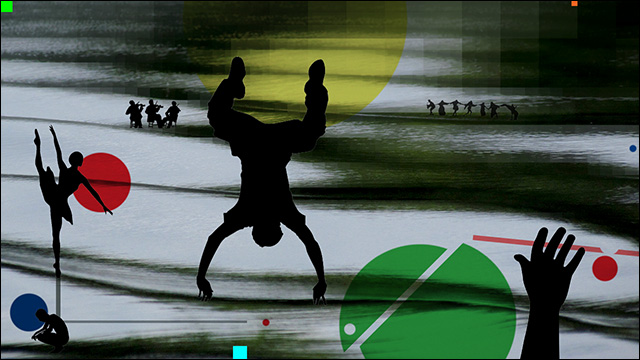Communication, food and territory: the ability distinctive gastronomy reputation of Brazilian cities
DOI:
https://doi.org/10.15448/1980-3729.2013.2.12140Keywords:
Reputation, Gastronomy, Cooking, Communication, UniquenessAbstract
This paper was designed for two goals. The first one is to build, from the data of the Project Paths of Flavor, an experience on creating a measuring scale for the perception of uniqueness of the cuisine-gastronomic reputation of territories. Secondly, to examine the following assumption: the effect of singularity is reinforced by the perception of expertise in the offer of food from local restaurants and bars. The results were inconclusive, but they raise evidence that counter the assumption.
Downloads
References
BALOGLU, Seyhmus; MCCLEARY, Ken W. A model of destination image formation. Annals of Tourism Research, Elsevier, v. 26, n. 4, p. 868-897, out. 1999.
CASARE, Sara Jane; SICHMAN, Jaime Simão. Towards a functional ontology of reputation. In: Proceedings of the Fourth International Joint Conference on Autonomous Agents and Multi Agent Systems. Nova York, v. 2, p. 505-511, 2005.
CHRISTIE, David John. A trilateral model for the management of corporate image: an examination of the interrelationship between an organization’s self image, its projected image and its perceived image. 2002. 2v. Thesis (Ph.D), Griffith University, School of Management, Gold Coast, 2002.
CONTE, Rosaria; PAOLUCCI, Mario. Reputation in artificial societies: social beliefs for social order. Dordrecht: Kluwer Academic Publishers, 2002.
CORNER, Dolores M. R. A gastronomia como atrativo no turismo cultural. In: SEMINÁRIO DE PESQUISA EM TURISMO DO MERCOSUL, 5./SEMINÁRIO DA ANPTUR, 3., 2006, Caxias do Sul, RS. Caxias do Sul: Associação Nacional de Pesquisa e Pós-Graduação em Turismo, 2006.
DESOUCEY, Michaela. Gastronationalism: food traditions and authenticity politics in the european Union. American Sociological Reveiw, v. 75, p. 432-455, 2010.
DOUGLAS, Mary. Decifrare un pasto. In: DOUGLAS, Mary. Antropologia e simbolismo: religione, cibo e denaro nella vita sociale. Bologna: Il Mulino, 1985.
FERNÁNDEZ, Gabriel; AGRELO, Gastón. La Cultura Gastronómica: un factor clave en el diseño de estrategias de imagen urbana – el caso de la ciudad de Bernal. In: JORNADAS DE PATRIMONIO GASTRONÔMICO: lo que revelan las cocinas en la mesa gastronomía y turismo cultural, 2., Buenos Aires, 2003.
GAIO, Sofia; GOUVEIA, Luís Borges. O branding territorial: uma abordagem mercadológica à Cidade. Revista A Obra Nasce, Porto, UFP, p. 27-36, 2007.
GRBAC, Bruno; MILOHANOVIĆ, Ana. Contribution of food products in creating cultural identity of tourist destination. In: International Conference on Cultural Heritage and Tourism. Creta, 2008.
IASBECK, Luiz Carlos Assis. Imagem e reputação na gestão da identidade organizacional. Organicom: Revista Brasileira de Comunicação Organizacional e Relações Públicas, São Paulo, GESTCORP/ECA/USP, v. 4, n. 7, p. 85-97, 2007.
KARIM, Shahrim Ab. Culinary tourism as a destination attraction: an empirical examination of the destination’s food image and information sources. 2006. 177 f. Tese (Doutorado em Filosofia) – Oklahoma State University, Stillwater, 2006.
KRAUSE, Wendhausen Rodolfo. A gastronomia como fator de influência na escolha de destinações turísticas e de sua hotelaria: base do estudo Balneário Camboriú no ano 2006/2007. 2007. 210 f. Tese (Doutorado em Turismo e Hotelaria) – Pós-Graduação em Turismo e Hotelaria, Universidade do Vale do Itajaí, Balneário Camboriú, 2007.
MONTANARI, Massimo. Comida como cultura. São Paulo: SENAC São Paulo, 2008.
RAFFESTIN, Claude. Por uma geografia do poder. São Paulo: Ática, 1993.
RAND, Gerrie Du; HEATH, Ernie; ALBERTS, Nic. The role of local and regional food in destination marketing: a South African situation analysis. Journal of Travel & Tourism Marketing, v. 14, n. 3-4, p. 97-112, nov. 2003.
RATIER, Michel. L’image en marketing: cadre théorique d’un concept multidimentionnel. Cahier de Recherche du Centre de Recherche en Gestion, n. 152, 2003. Disponível em: http://w3.univtlse1.fr/IAE/files/154_pdf.pdf. Acesso em: 24 mar. 2003.
SCHOLLIERS, Peter. Inovação e tradição: o novo cenário da gastronomia. In: FREEDMAN, Paul. A história do sabor. São Paulo: SENAC, 2009.
STILES, Kaelyn; ALTIOK, Özlem; BELL, Michael M. The ghosts of taste: food and the cultural politics of authenticity. Agriculture and Human Values. Columbia, v. 28, p. 225-236, jun. 2011. Disponível em: http://www.springerlink.com/index/10.1007/s10460-010-9265-y. Acesso em: 24 mar. 2010.
WOOD, Julia T. Mosaicos da comunicação: uma introdução aos estudos da comunicação. São Paulo: Ática, 2009.
Downloads
Published
How to Cite
Issue
Section
License
Copyright
The submission of originals to Revista Famecos implies the transfer by the authors of the right for publication. Authors retain copyright and grant the journal right of first publication. If the authors wish to include the same data into another publication, they must cite Revista Famecos as the site of original publication.
Creative Commons License
Except where otherwise specified, material published in this journal is licensed under a Creative Commons Attribution 4.0 International license, which allows unrestricted use, distribution and reproduction in any medium, provided the original publication is correctly cited.






